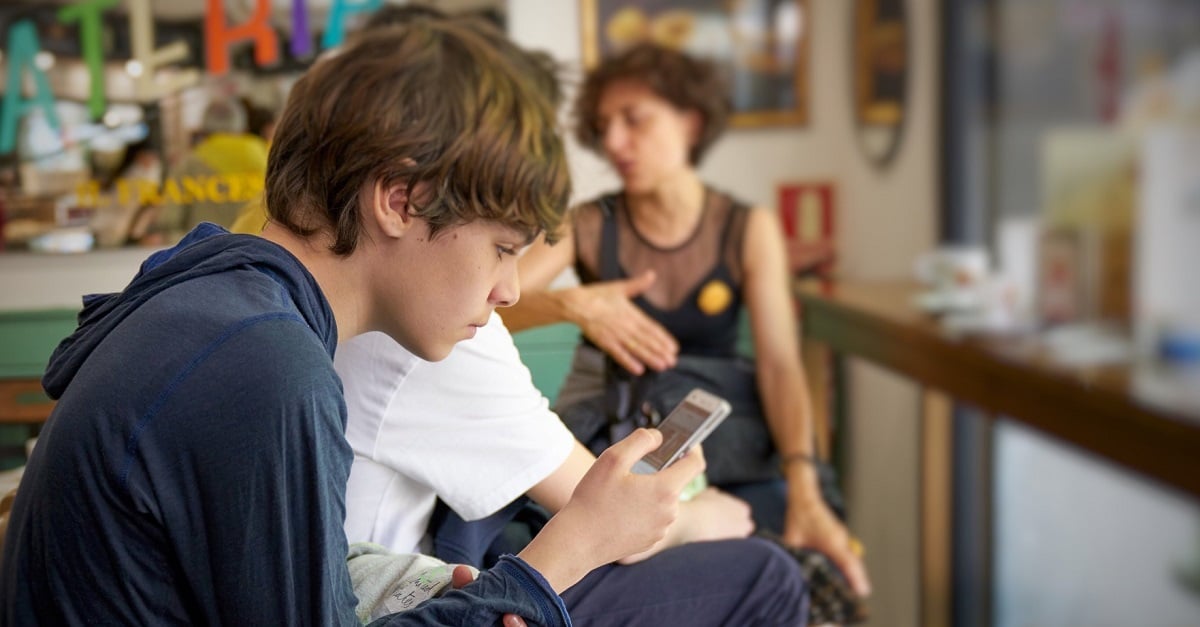
I distinctly remember the day when my mom started talking about puberty with me. It was a conversation that didn't last long.
The reason was, I was an awkward kid, and talks like this didn't happen all that often. Plus, my parents were both teachers. So when they discussed these things, their attitude was a little different. Imagine walking into your kitchen at the age of 9 to grab a glass of water, but instead your elementary school teacher is sitting there with graphs. It can be a little intimidating.
Now as a mom myself, I realize that talking about puberty with my daughter is something that will be strange. Most parents aren't excited about "the talk." However, I think I might go about it with a different approach. For one, puberty is all about body changes. So it's bound to be awkward. But if you treat the human body as a normal thing throughout a child's life, they may have a better time accepting what's happening. It's not weird, and it's something we all go through.
Here are eight ways to avoid absolute embarrassment while talking about puberty. Remember, this isn't easy for anyone.
1. Slowly prep them by buying supplies.

An ambush conversation is good for nobody. You're not giving your preteen an intervention. Instead, you're talking about a completely normal life stage with them.
Girls might have a tough time talking about bras, body hair, and periods with you. A lot of that is likely because these changes are a surprise. They can happen overnight. With puberty, you literally wake up in a different, growing body.
Having some supplies around is step one. And casually telling them where to look for things like pads, tampons, or razors is also helpful. You're putting the ball in their court, and they have one less thing to think about. They know the house will have the supplies they need once that time comes.
2. Don't play up the topic.

If you act like you're embarrassed by it, they'll feel as if puberty is a taboo topic. You don't want to lecture; you want to be cool about it. There's a good chance that they already know a lot. If they have their own laptop, or they use a tablet in school, they've probably googled a few questions already.
In a way, you may want to approach it as a refresher. Assume they already know some stuff, but let them feel comfortable with asking you questions. No question should be off-limits. Treating acne or body hair or periods as something that's "gross" might end up making them feel negative about their bodies, so be careful with how you phrase your responses.
3. Try to talk to them before their school does.

Most schools have a thorough program on puberty and body changes. But while those programs can be thorough — and a great way to discuss the topic — your preteen may feel a little strange learning stuff right next to their peers.
KidsHealth actually suggests talking to your kids even earlier than this. It's almost like studying up on a keynote speaker before watching the speech take place. You don't need to bombard them all at once, but if they're influenced by you before hearing about it in school, they'll probably be less embarrassed about it in general.
KidsHealth also suggests being the one to talk about it first: "Don't wait for your child to come to you with questions about his or her changing body — that day may never arrive, especially if your child doesn't know it's OK to talk to you about this sensitive topic."
4. Don't outnumber them.

If both parents address the topic with your preteen at the same time, your child may feel ganged up on. Instead, take it one at a time. And dip your toe in the water before taking the plunge.
All preteens will react to the puberty talk a little differently. If you have an open relationship with your child, it may be very easy. But if your kid is feeling nervous and not very self-confident, "the talk" is the last thing on their mind. So take it easy, and don't turn your conversation into a huge family event.
5. Don't talk about all of it all at once.

Take it one step at a time. Talking to your children about periods, sex, babies, and body changes can be really intimidating. Start with the small topics, like discussing a growth spurt or questioning whether or not they want to start shopping for bras.
Even bras can be a little intimidating for a girl, and depending on your relationship, it may be something she's not willing to chat about with you yet. In that case, you can buy her a few training bras and let her try them on when she's ready and comfortable.
6. Remind them that timing varies for everyone.

It's not like puberty starts happening on the day of your child's 12th birthday. It'll happen in stages for everyone. And it may be a little nerve-wracking for your kids if their friends have noticed changes that they haven't yet. They may wonder whether or not they're normal.
It's your job to remind them that they are. Nobody wants to wait around for these changes to occur, but by reminding them there's a pretty wide range, it may give them some self-assurance. As far as puberty goes, that's one of the most alarming parts of it.
You can also help your teen look out for certain warning signs so that they feel prepared. For girls, you can tell them that cramps and achiness are often two big signs that their period is on the way.
7. Don't talk about it in front of their friends.

Flash back to your own childhood. Would you be cool talking about your body changes with your friends around? Probably not. It's just bound to make everyone uncomfortable.
Even though these are very normal changes that happen to everyone, they're also very private. Respect your children by making it a nonissue when their peers are around. Any chats about breaking out or body hair should be shelved since kids this age are more sensitive than ever. By agreeing not to make jokes, you're showing your preteen that you respect them.
8. Be reasonable and understanding if they approach you about change.

And not just body change. Puberty can make preteens want to act older. This is a big milestone, and they're probably going to want to shed a lot of the "kid" distinctions they have. Listen to them, and work on compromises you both agree with.
"Your preteen may also start wanting to dress more adult or wear make-up. They may want to shave or wear deodorants or scents. It’s up to you to decide what you think is appropriate at what age," Planned Parenthood writes. "Communicate your values clearly to your preteen, and explain your thinking so they can understand where you’re coming from. They’re more likely to listen if you can have a conversation about values instead of just listing rules."
Remember, it's your job to keep your kids safe. But at the same time, they may rebel against you further if you have strict rules that don't allow them to grow as individuals.




